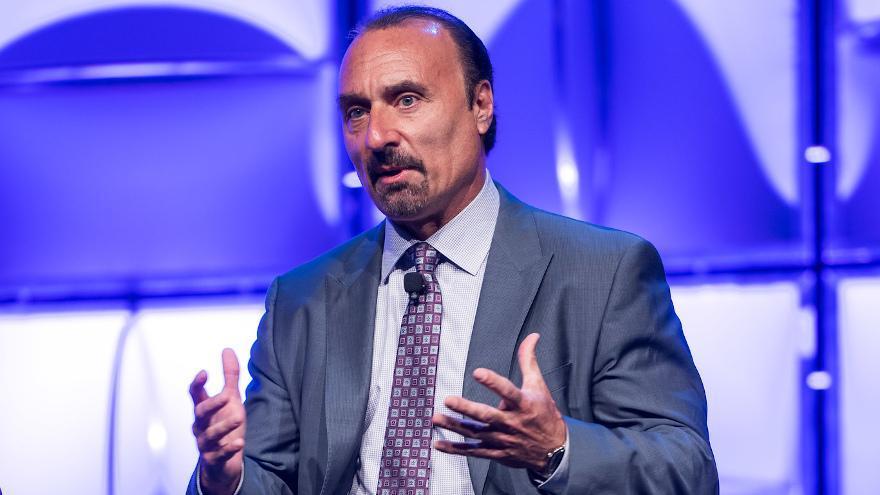Rise in used vehicle wholesale prices doesn’t slow August retail sales

File photo of ADESA chief economist Tom Kontos during an NIADA conference. Photo courtesy of NIADA.
Wholesale vehicle prices have begun to climb again after three months of declines, but that didn’t slow down used car sales in August, according to the latest monthly report from ADESA chief economist Tom Kontos.
The new Kontos Kommentary, released this week, using ADESA US Analytical Services’ monthly analysis of auction industry used vehicle prices by vehicle model class, showed wholesale prices in August averaged $14,912, an increase of 3.0% from July, which is 6.0% below August 2022 and 33.1% above the pre-pandemic level of August 2019.
That month-to-month increase continued into the first half of September, Kontos said.
“One can speculate that concerns about the possibility of a protracted UAW strike played a role in these trends,” Kontos said. “But just as important, if not more so, has been the desire of consumers to find more affordable alternatives to new vehicles in light of high inflation and interest rates.”
That desire helped lead to strong used vehicle retail sales in August — up more than 10% from the previous August.
Still, year-to-date used sales are down 1.1% from 2022, with franchise dealers taking the brunt of that drop at 2.2% while independent dealer sales fell just 0.1%. In fact, Kontos’ report showed independent dealers actually slightly ahead of franchises in year-to-date used vehicle sales volume, with more than 8.84 million units sold compared to 8.785 million for franchise dealers.
Kontos also offered a look at some trends in traffic volume data issued by the U.S. Department of Transportation, estimating the number of miles driven by American drivers, which, Kontos said, is “a fundamental determinant of vehicle replacement demand, and therefore sales.”
Since the enormous drop in miles driven in 2020 due to the pandemic and subsequent lockdowns, the data shows a slow, gradual recovery which has continued in 2023, with current year-to-date mileage just 1.2% down from pre-pandemic levels.
But Kontos pointed out that the recovery is not complete, which he said correlates with consumers being “highly sensitive to affordability issues” in the current market.
“This has important ramifications for new and used vehicle sales,” he explained, “as consumers are more able to curtail their vehicle purchases if they feel that vehicle prices, interest rates and general inflation are too high since they have put fewer miles on their vehicles over the past three-plus years.”

 View The Latest Edition
View The Latest Edition

